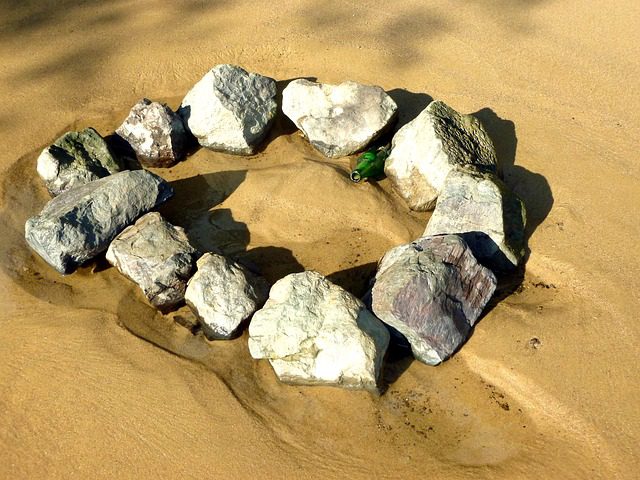Then Jesus told them a parable about their need to pray always and not to lose heart. He said, “In a certain city there was a judge who neither feared God nor had respect for people. In that city there was a widow who kept coming to him and saying, ‘Grant me justice against my opponent.’ For a while he refused; but later he said to himself, ‘Though I have no fear of God and no respect for anyone, yet because this widow keeps bothering me, I will grant her justice, so that she may not wear me out by continually coming.’” And the Lord said, “Listen to what the unjust judge says. And will not God grant justice to his chosen ones who cry to him day and night? Will he delay long in helping them? I tell you, he will quickly grant justice to them. And yet, when the Son of Man comes, will he find faith on earth?”
He also told this parable to some who trusted in themselves that they were righteous and regarded others with contempt: “Two men went up to the temple to pray, one a Pharisee and the other a tax collector. The Pharisee, standing by himself, was praying thus, ‘God, I thank you that I am not like other people: thieves, rogues, adulterers, or even like this tax collector. I fast twice a week; I give a tenth of all my income.’ But the tax collector, standing far off, would not even look up to heaven, but was beating his breast and saying, ‘God, be merciful to me, a sinner!’ I tell you, this man went down to his home justified rather than the other; for all who exalt themselves will be humbled, but all who humble themselves will be exalted.” Luke 18:1-14
I read a story in my ‘other’ Bible–Sunset Magazine– about guy who spent 4 days alone on an island. Sounds great, right? Sun, sand, maybe an umbrella drink? But this was not a tropical island. It was a self-imposed island– 8 feet wide. He was in the wilds of northern California, on a modern day vision quest. After a brief consult with a spiritual director, he set out and constructed his small stone circle, called a medicine wheel. No food, no bed or blanket, no books or distractions of any kind. Only water, and a deep desire to see something that might awaken him to a deeper kind of reality.
What would you miss first? I’m thinking coffee. Or Netflix! Or my pillow. I love my pillow. Or maybe just the notion of a roof over our heads… maybe that would be the thing that, in the end, we just do not know how to be without. It’s worth thinking about… who are we, without those things that hem us in, and tuck us under, and make us feel like we are somewhere?
In this season of Lent, we find our own wilderness. Maybe nothing as epic and boast-worthy as an 8-foot rock circle. But we are called to lay something down, or pick something up, that pushes us into a place without our comforts. Without the things that we think define us, or that we use to fill our time. In that place– the woods or a sanctuary, or maybe just an undisturbed hour of the morning–we ask ourselves that most difficult of questions: who are we, without our stuff?

Once, there was a Widow. You know the drill. She was being taken advantage of. We don’t need details, this is a familiar plotline through the gospels. The poor, the most vulnerable, the bottom of the totem pole… they had no advocates. No social workers, no health and human services department. They were at the mercy of neighbors, and often, their neighbors made things worse.
So this widow went to the local judge for mercy. He turned her away… again and again. She was warned, she was given an explanation, nevertheless… (We know this story, too). She persisted. And the judge, finally, gave in. After her relentless pleas for help, he could refuse her no more.
He’s not exactly a stand up guy, you know? He doesn’t help her out of the goodness of his heart, or some moral imperative of his faith… She simply wears him down. He is not the hero here. No, the hero of this story is the one whose faith will not quit, no matter how little she has.
Because nothing is an accident in Luke’s sequence of events, there’s this other story, a parable about a Pharisee. On paper, this guy does everything right. He prays, fasts, shows up at Temple. He tithes, he even stays for coffee hour. But the only prayer he knows, the only word of praise on his lips is praise for his own righteousness. “Thank you, Lord, that I’m not a sinner like all those other people.”
Hmmmm… I think he missed something fundamental in Sunday school. Because that is not so much righteousness as it is SELF-righteousness. A fine line, to be sure; but a crucial one.
These parables, like all parables, have multiple layers and moving parts. But at heart–Jesus gives us these two short stories as lessons in how to pray. Two sides of the same coin, exploring the right, and the wrong way to approach God.
The Pharisee–the one who is educated, and knows all the rules of faith–he comes to prayer with a sense of entitlement, and a list of tangible expectations. He is the original author of the prosperity gospel… live right, and you’ll be rewarded with material stuff. So naturally, his greatest praise is for himself. The source of his hope? That guy right there in the mirror. But is there anything within himself in need of transformation? Not a chance.
And then there’s the widow. Her prayer is simple. It is persistent. Most importantly, it is full of hope. Her only request is that justice be done, and she trusts that some source outside of herself might help transform her situation.
The widow comes from a place of desperation. She’s represents many people living in her time and cultural context, who prayed from a posture of lament. It’s a “how long o lord” kind of place. And like all those poor and vulnerable she is meant to embody, she wonders when she will be vindicated…
This waiting for vindication is another common theme in Luke–and this author, whose gospel turns the world upside down, again and again– says that who will be vindicated, is not who you think. Who is righteous? not who you think either.
In other words… the Pharisee is in trouble. (Aren’t they always). And the widow will inherit the earth.
We tend to think of ourselves as people with a heart for the poor and vulnerable. People on the front lines of justice work, advocating for healthcare and education, pushing for social change that will benefit those on the margins. And lately, our prayers have been of the “how long, O Lord” variety….
We lament for those being objectified, victimized by system. We mourn racial injustice, a growing economic gap, and a suffering earth. How long can this stand? Why won’t God reconcile some of these wrongs, and teach some of these evil-doers a LESSON??
Thank you, Lord, that we are not like them.
It’s easy to get ourselves into trouble there, isn’t it?
As we try to locate our place in the circle of bringing about God’s kingdom vision for creation–helping to draw some life out of the ashes of toxic rhetoric and greed and fear-mongering… we may find ourselves rooted in the place of righteous indignation, inhabited by this Pharisee.
Spoiler alert–he is not the good guy in the story.
It’s a slippery slope from that place of self-righteousness, to rage. And from there, to ‘stuck’ places of hopelessness, where we can be of no good to anyone.
In this season of Lent, we remember that the work of justice is spiritual work. To be effective, that work needs to flow from a place of rootedness. A connection to the world as it is and a deep knowledge of our place in it, as followers of Christ. In this roller coaster of a new administration–with its daily scandal, gaf, or even the occasional small glimpse of hope that maybe this won’t last long… More than ever, we need to root ourselves in WHO we are; and WHY we do what we do. The only way to do that is to nurture a life of the spirit that sustains through it all.
In an episode of OnBeing, I heard that many activist groups are engaging in spiritual practice behind the scenes… they’re having retreats and ceremonies, singing songs and lighting candles and lifting each other up to ward off the effects of fatigue and burn-out. They’re gathering in community so that they can be centered and more prepared for the work ahead.
Patrisse Marie Cullors-Brignac, a co-founder of Black Lives Matter, says:
“I come at all my work from a deep philosophical place that [asks], what does it take for humans to live in our full humanity and allow for others to live in their full dignity? I don’t believe spirit is this thing that lives outside of us dictating our lives, but rather our ability to be deeply connected to something that is bigger than us. That is what makes our work powerful…
It’s not just about changing policies. It’s not just about changing lives. It’s about changing our culture and changing how we fight. We can change policies all day but if the fight to get there was full of trauma, was replicating oppressive dynamics, abusive dynamics, then what is the point?”
It seems that justice groups are learning what we church folks are supposed to know already. That community engagement and the work of transformation, must flow from a place of hopeful connectedness, not just outrage. And that the greatest change comes from those whose hope is something greater than their own awesomeness, and their own ability to bring about change.
Is the Church effectively modelling this rhythm of prayer and action for secular groups who care about the same things we care about? Maybe. But my sense is, we could do better…
Lest we become like the Pharisee whose favorite prayer is, “thank you, God, for making us so enlightened and progressive and awesome,” we’d best get ourselves to a wilderness place.
It is camp Sunday– we raise support for camp, get kids excited about camp, and celebrate that camp is not just a place, but a certain rhythm. A time and space set apart, devoted to worship and connection and rootedness. And if a kid goes to camp enough times in his or her life, then it provides more than just memories. It is a way back into that space of knowing and being known in the presence of God. All of their lives, in times of struggle and doubt and “how long, O Lord,” their camp life and memories will offer a way back to that center, where they will be sustained.
We give thanks for our camp today, and for your support in making camp a part of our kids’ lives. Meanwhile — how are we going to take ourselves to the wilderness?
Sometimes, for me, it is too much about landscape. I get to thinking that I need mountains, or ocean, or the desert, to truly feel close to God… But living here in the dead-ass-middle of the world, that’s kind of a problem. With nothing to push me squarely into that geographic sacred space, I have to dig a little deeper. I have to find a place within myself. I have to carve out an early morning hour, or a midday breath of outside stillness, or a late-night wander in the dark, to find out who I am without my stuff. That’s where I can acknowledge that sometimes, my righteous indignation is the hardest thing of all to lay down and leave outside the circle.
Every day, as we prepare ourselves to wade through the world–with all its heartache and imbalance and ‘how long O Lords”– we have to lay down all of our stuff. Even–maybe even especially–our attachment to what we think we know, and what we think God should be doing about it. Then we can listen, instead, for a still small something to speak. Then we can go to God with no entitlement and no list of demands… just a genuine hope, that something within us might be transformed. And that we might, in turn, offer that something up to the world.
And what about our wilderness wanderer, from before–who spent 4 days inside a tiny circle of stones, in the middle of nowhere? Well… it turns out, he did not get eaten by a coyote, which was his primary concern.
More than that–he found that small circle was bigger than anything he could have imagined.












